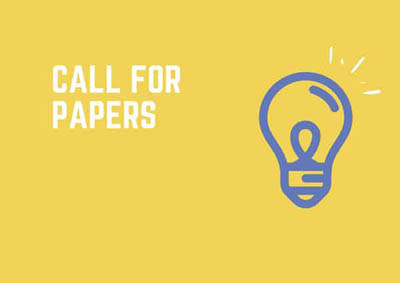Many societies throughout the world have demonstrated a willingness to sacrifice forests in pursuit of economic development. However, there is a counter-trend in literature and environmental science—a focus on the possible and even likely sentience of trees, a notion that has the potential to inspire new appreciation for trees as organisms akin to ourselves and worthy of affection and protection. One of the earliest representations of tree-sentence in an effort to encourage forest conservation is John W. Jakes’s little-known science fiction story “The Dreaming Trees” (November 1950), published when the up-and-coming author (whose historical fiction later sold millions of copies) was only eighteen years old. In this lecture, I will discuss Jakes’s story alongside such contemporary works of arboreal and forest-management science as Peter Wohlleben’s The Hidden Life of Trees: What They Feel, How They Communicate: Discoveries from a Secret World (2015). I will situate my discussion in the context of an emerging sub-discipline known as arboreal ecocriticism, which was documented in the Spring 2022 special issue of Lagoonscapes: Venice Journal of Environmental Humanities.
Category: Latest News
【學術演講】Professor Scott Slovic, “Emotion and Meaning in the Anthropocene”
Psychologists have learned in recent decades that there are various cognitive reasons for our collective inaction in the face of urgent humanitarian and environmental crises, ranging from the struggles of refugees to the daunting specter of global climate change. At Decision Research, an independent research institute in Eugene, Oregon, we refer to this complex of cognitive paradigms that describe human insensitivity to vital information as the Arithmetic of Compassion, alluding to a line from Polish author Zbigniew Herbert’s poem “Mr. Cogito Reads the Newspaper.” Our failure to respond emotionally to information about serious crises is fundamentally linked to the human insensitivity to numerical information, especially to quantities of victims exceeding very small numbers—what this means is that the more significant a crisis is (i.e., the more human or nonhuman victims it involves), the less we care. Despite our worrisome tendency to be insensitive to information and desperately slow to respond to crises, we have many skilled communicators—journalists, literary artists, photographers, filmmakers, and others—who have developed strategies for piercing our emotional shells and investing potentially numbing statistics and technical descriptions with meaningful poignancy. The field of affective ecocriticism tends to focus on societal paralysis caused by eco-anxiety as a reason for our ineffective response to crises such as global climate change; in this lecture, I will argue that we need meaningful, energizing emotional responses to warnings about climate change and other environmental challenges.

2018 International Symposium of Literature and Environment, East Asia
中華民國文學與環境學會將於2018年10月舉辦「

2018 Cross-Strait Symposium on Literature and Environment
堅持人與自然和諧共生,構建中國生態批評話語—-第八屆海峽兩岸生態文學研討會開始徵稿,歡迎踴躍參與投稿,詳細訊息及聯絡資訊請參閱轉載邀請函。
截稿期限:2018年6月30日
會議日期:2018年11月3-4日

Call for Papers: International Symposium on the Humanities for the Environment
Call for Papers
International Symposium on the Humanities for the Environment
National Sun Yat-sen University, Taiwan
November 18-November 19, 2018
Never in human history as now in the 21st century has our species’ ability to cope with planetary change been so urgent. Although the Anthropocene as an official geological epoch is still under debate, the concept has been widely used to describe the pervasive human impact on the planet since Nobel Prize-winning chemist Paul Crutizen proposed that we were “living in the Anthropocene”. An Anthropocene Working Group has been commissioned to investigate the possibility of formally adding the Anthropocene to the Geological Time Scale. Referring to the Anthropocene and its most discussed consequence, climate change, the historian Dipesh Chakrabarty has suggested that humanities as a discipline needs to envision the way the human beings become an agent of historical change. Recently Joni Adamson, Poul Holm, and other scholars across the globe have established The HfE Observatories (Humanities for the Environment: Observatories for Environmental Humanities Researchers) through which to observe, explore and enact the crucial ways humanistic and artistic disciplines may help us understand and engage with global ecological problems by providing insight into human action, perceptions, and motivation. They have collectively publicized “Humanities for the Environment: A Manifesto for Research and Action” as an invitation to the “Humanities for the Environment” open global consortium of humanities observatories. This Symposium presents cutting-edge researches and voices from the HfE Global Network to examine how the humanities and arts contribute to understanding the challenges of global environmental change. Through observing and exploring human actions and motivations, values, priorities, and habits, we propose an agenda that focuses on global humanities research in response to the challenges of planetary environmental change. This Symposium explores the role of the humanities in a time in which human activity is significantly reshaping the geological future of the planet. It demonstrates our continuous effort to expand the network and develop a shared agenda for research and action.
The deadline to submit abstracts is May 20, 2018, and it should be no longer than 500 words. The length of your full paper should not exceed 8,000 words.
To submit your abstract, please click on the following link:
https://goo.gl/forms/inDFlpsvpyI3vunP2
Important dates:
Deadline for abstract submission: May 20, 2018
Notification of acceptance: May 31, 2018
Deadline for full paper submission: October 1, 2018
Organizers:
Center for Humanities Innovation and Social Practices, NSYSU, Taiwan
Center for the Humanities, NSYSU, Taiwan
The Humanities for the Environment, Asia-Pacific Observatory
Asian New Humanities Network
Attachment: 2018-HfE-CFP